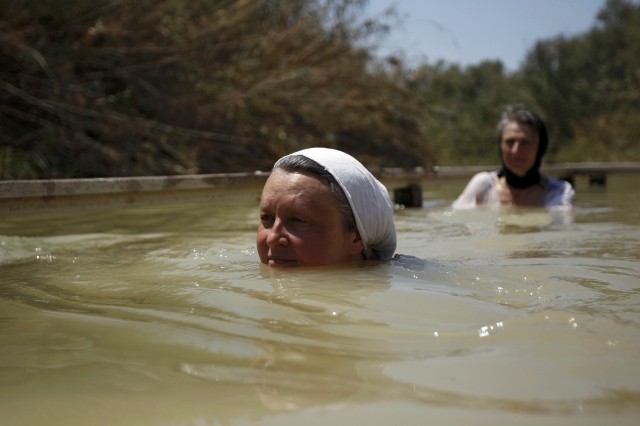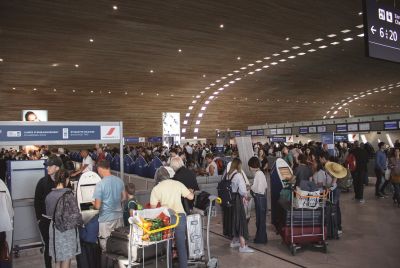Israel Plans to Resurrect Jordan River to Former Glory, as Tourists Bathe at Jesus’ Baptismal Site [PHOTOS]
Christian tourists bathed in the waters of the Jordan River, at the baptismal site known as Qasr el-Yahud, near the West Bank city of Jericho, in Israel, on Wednesday. The Israeli government announced plans for the revival of the river a few weeks ago.
The New Testament describes Jordan River as the place where Jesus was baptised by John the Baptist and also the place where Jesus was declared the Son of God. Matthew 3:13 (American Standard Bible) mentions the incident: "Then Jesus came from Galilee to the Jordan to John, to be baptized by him. 14 John would have prevented him, saying, "I need to be baptized by you, and do you come to me?" 15 But Jesus answered him, "Let it be so now; for thus it is fitting for us to fulfil all righteousness." Then he consented. 16 And when Jesus was baptized, he went up immediately from the water, and behold, the heavens were opened and he saw the Spirit of God descending like a dove, and alighting on him; 17 and lo, a voice from heaven, saying, "This is my beloved Son, with whom I am well pleased."
Qasr el-Yahud, the most likely site for Jesus' baptism by John, was reopened to tourists in 2010 after being closed for 44 years. The holy site saw tourists from Romania and other Christian nations taking a dip in the waters of the Biblical river.
Tragically, sacred river or not, the Jordan has become, in many parts, a narrow stream... both polluted and stagnant. However, should the government's plan for revival through desalination and waste water recycling, as reported by Reuters, come to pass, it should ensure the Jordan River will slowly be returned to its former glory. The river flowing today is just five percent of what once flowed, according to Ben Ari, one of the rehabilitation project leaders.
"You can easily walk across without getting your head wet," he told Reuters.
The problem, it seems, is that Israel, Syria and Jordan have reportedly diverted as much as 90 percent of the river's natural flow, for domestic and agricultural use, making it nothing more than a passage for sewage flowing into the river.
Israel's new revival policy aims at introducing approximately 150 million cubic meters of water, every year, from the Sea of Galilee, a major feeder to the river. The entire project may take up to 10 years to be completed, according to Energy and Water Minister Uzi Landau.








© Copyright IBTimes 2025. All rights reserved.






















